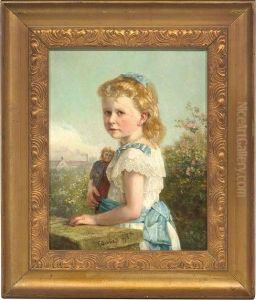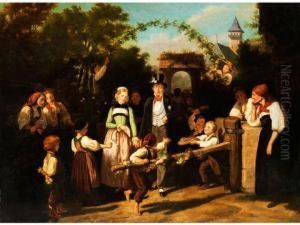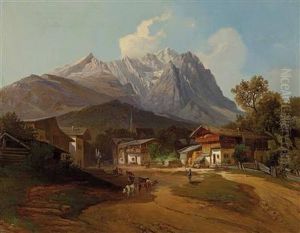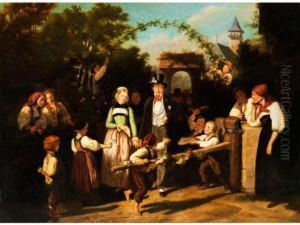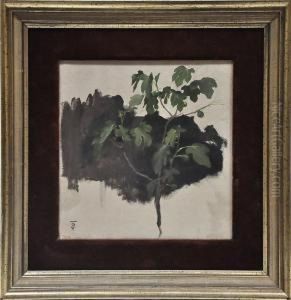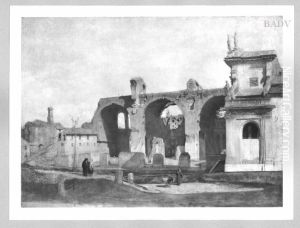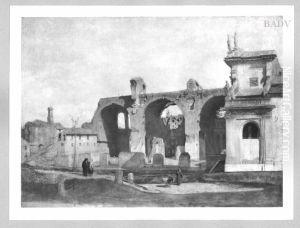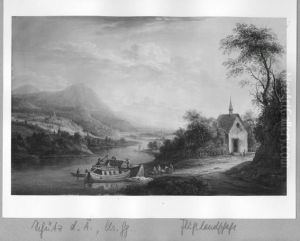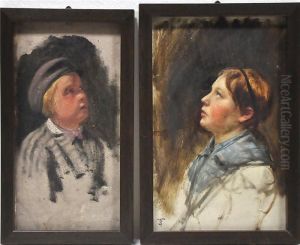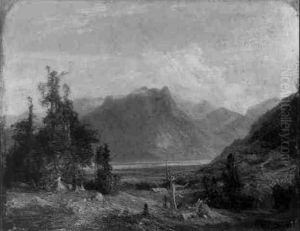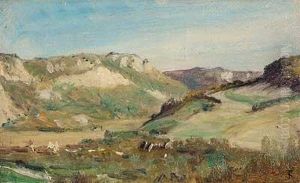Theodor Christoph Schuz Paintings
Theodor Christoph Schüz was a German artist and painter born on March 23, 1751, in Ludwigsburg, Germany. He was known for his works in portraiture as well as historical painting. Schüz studied under his father, who was also a painter, before continuing his artistic education at the Academy of Fine Arts in Stuttgart, where he honed his skills and developed his own artistic style.
During his career, Schüz worked primarily in southwestern Germany. His paintings often depicted scenes from history and literature, and he was also an accomplished portraitist, capturing the likenesses of prominent individuals of his time. In addition to his painting, Schüz was engaged in the world of art education, contributing to the training and development of young artists.
After a long career marked by a commitment to his craft, Theodor Christoph Schüz passed away on December 20, 1829, in Stuttgart. While not as widely known today as some of his contemporaries, Schüz's work remains a part of the cultural heritage of Germany, offering insights into the aesthetic sensibilities and historical narratives of his era. His legacy is preserved in various art collections and museums where his paintings continue to be appreciated by art enthusiasts and historians alike.
